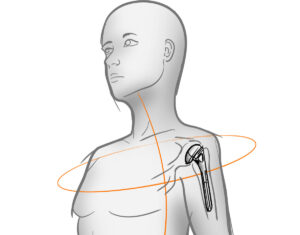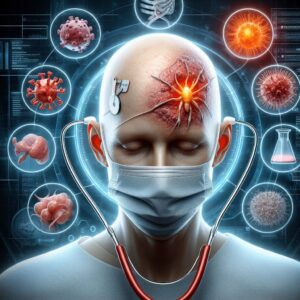What Is Machine Learning and How Is It Beneficial for Healthcare Practices?

The goals of most healthcare technologies are simple: to improve patient outcomes while streamlining the treatment process for healthcare providers whenever possible. Human health is incredibly complex and technology offers us many innovative and exciting ways to prevent, diagnose, and treat illnesses and injuries. Machine learning, for instance, which is a type of artificial intelligence (AI) is helping to revolutionize the healthcare industry in several different ways.
What Is Machine Learning?
Artificial intelligence describes technology that can mimic human thought. Machine learning is a branch of artificial intelligence that primarily attempts to create intelligence capable of learning and improving over time. In the field of machine learning, the more data that is processed, the more accurate the AI will be, in theory.
Machine learning can become quite sophisticated when it is well-designed. In healthcare, the applications for this type of AI are diverse and revolutionary. Artificial intelligence with the capability to improve over time is helping the industry leverage truly massive amounts of data that could help us improve our understanding of human health as a whole.
The Benefits of Machine Learning in Healthcare
The healthcare industry is beginning to make use of machine learning in many different ways. These are just a few of the current applications, though the technology has the potential to do even more as it improves.
Improving the Diagnostic Process
Some health problems are extremely difficult to diagnose, even for an experienced practitioner. There are many symptoms that are shared between ailments, not to mention some presentations that are totally unfamiliar to many doctors. Other diseases stay under the radar until they have become severe.
Machine learning, with its ability to quickly process data that can provide clues to a patient’s condition, can help doctors understand different possibilities more quickly. With ailments that are difficult to diagnose, patients sometimes suffer for far longer than necessary as different treatments are tested and conditions are ruled out.
In some cases, these diagnostic applications have proven to be more accurate than human doctors. Google’s machine learning systems have reached 16% greater accuracy than human diagnosticians in breast cancer diagnoses. As cancer treatments are much more successful when initiated early, these diagnostic boosts can be critical.
Drug Discovery and Manufacturing
We rely on advanced medications to treat a wide range of health conditions. The process of creating these medications is extremely slow as it’s crucial to determine the safety and effectiveness of a drug during the discovery and manufacturing processes. Machine learning has been used to help speed up this process without sacrificing safety.
Machine learning is especially helpful in the early phases of drug development. The technology is able to detect patterns to help guide researchers in creating new treatments. Machine learning may eventually become instrumental in the development of highly effective personalized medications.
Outbreak Prediction
As the COVID-19 pandemic wears on, there’s a big question on most of our minds: how can we do better next time? How can we prevent large-scale tragedies from occurring in the future, now that we’re constantly traveling and exposing one another?
Technology may be able to help. With artificial intelligence and machine learning, we can do more to predict and track epidemics in the future. Although it’s impossible to prevent the spread of disease entirely, especially before the specifics of the disease are well-known, using machine learning to predict outbreaks could allow for more targeted and helpful prevention techniques.
One example of this is ProMED, an online platform used to keep track of new and evolving diseases. Real-time reporting can help to prevent viruses from getting out of control.
The Challenges for Machine Learning in Healthcare
Machine learning is extremely versatile and can make incredible improvements over time. However, it’s important to realize that it is technology that was made by humans, and human biases tend to sneak their way into machine learning algorithms, affecting all future learning.
This is a challenge, especially in a field like healthcare, which requires precision and a very high level of ethics. When using data, it is important to make sure it is done in an ethical way that reduces biases and provides fair, accurate results.
Data can be used for social good, but ensuring that the technology is fair and ethical is a difficult task. Unfortunately, systems that do not follow these ethical guidelines will continue to learn based on faulty premises and will not deliver the results the healthcare industry requires.
Nursing Informatics: Improving Healthcare with Data
All this data has the power to revolutionize the healthcare industry—if we can extract relevant insights from it. Fortunately, there are healthcare professionals who are intensely focused on this task. Nursing informatics is a crucial offshoot of the nursing field that helps to improve patient care and outcomes.
Nursing informatics professionals work with data to understand trends, find shortfalls, and suggest improvements. Collecting and analyzing data are just two steps in the process—to really see the full benefits of our healthcare data and improve the industry as a whole, machine learning needs to be paired with specialized experts whose goal is to heal and help.



